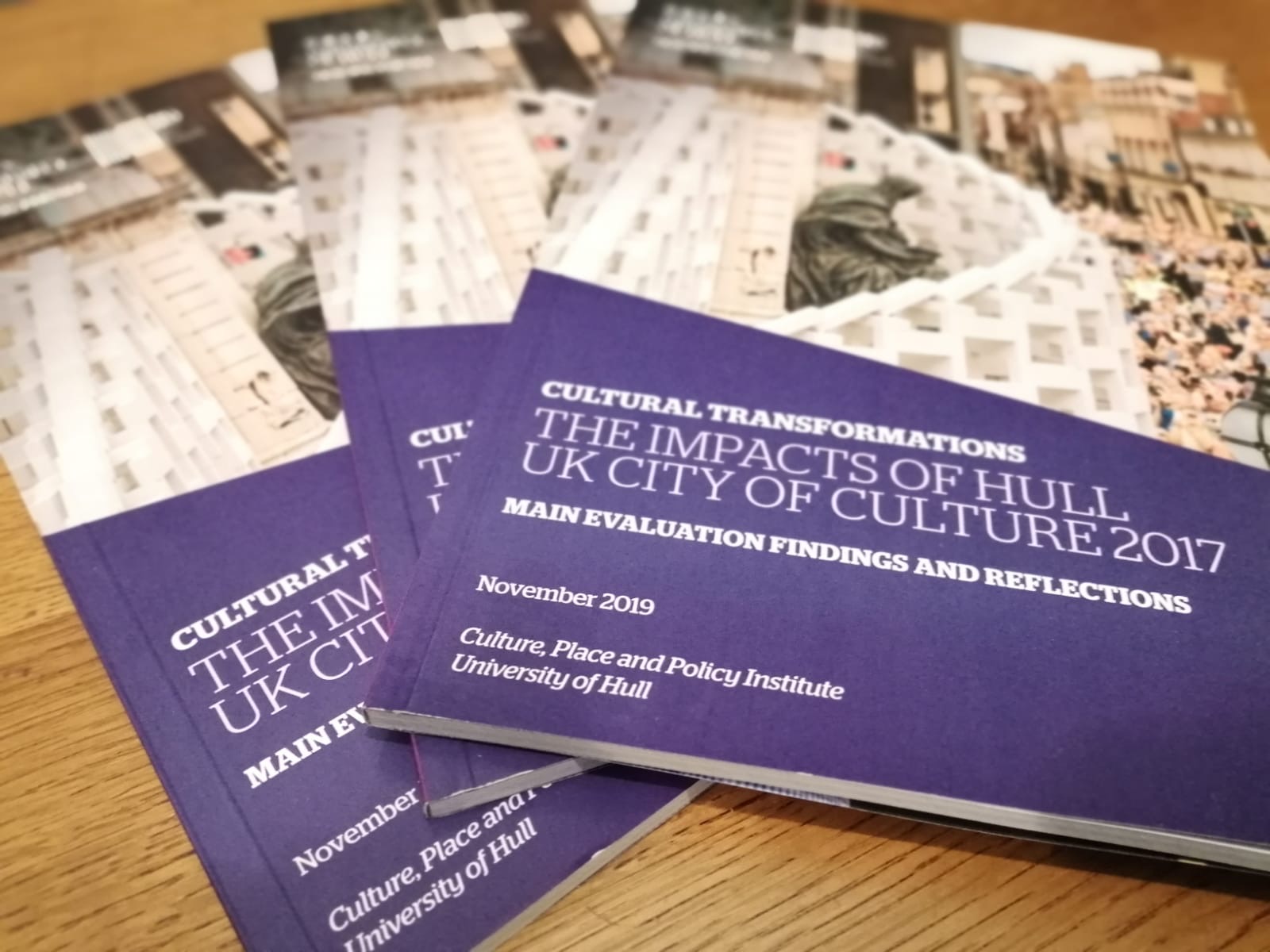
City of Culture Insights, Questions and Provocations
Earthen Lamp’s Vishalakshi and Maike traveled to Hull for an insightful couple of days at the Cultural Transformations: What Next? Conference. Here they share their conference highlights.
On 19-21 November 2019, the Culture, Place and Policy Institute, University of Hull hosted Cultural Transformations: What’s Next?. The conference followed-on from Cultural Transformations: The Impacts of Hull UK City of Culture 2017 which we attended in March 2018.
The conference was a forum for debating the issues and challenges for future Cities of Culture based on the learning from the evaluation of Hull UK City of Culture 2017. Attended by academics, creative and cultural organisations, funders and policy makers the event presented lively presentations and panel discussion on five broad themes:
- City of Culture legacies, challenges and rewards
- Local identities, city image and pride
- Cultural vibrancy, collaboration and continuity
- Economic vitality, equity and sustainability
- Wellbeing, social capital and learning
Four key questions that came up across the three days were:
- Why do we need evaluation and who is it for?
- What is legacy?
- What is the role of place?
- Does culture bring people together?
Like with any good debate, the questions prompted different and, in some cases, opposing answers in the room.
Here’s a overview of the thoughts that stayed with us from the conference:
- During the launch event representatives from Hull (UK City of Culture 2017), Derry/Londonderry (UK City of Culture 2013) and Liverpool (European Capital of Culture 2008) reflected on their experiences and learning for future candidates. Speakers talked about taking risks, believing in the people and place, being realistic about aims and while focusing more on outcomes than on targets. The importance of legacy and asking “what’s next“ early on in the process was highlighted during the presentations. The speakers were confident that such a title has the power to change the narrative of a city.
- The session on local identities, city image and pride sparked debate about evaluation methodologies that are able to capture the multidimensional aspects of the image of a city and changes to local, national and global perception during a City of Culture year.
- The session on cultural vibrancy, collaboration and continuity returned to the question of evaluation and the quantity of data that is collected and advocated for a shift towards capturing more whilst measuring less through robust research approaches.
- At the session on economic vitality and sustainability we noted that Hull was successful in sustaining its visitor economy throughout 2017 compared to previous years. The night-time economy had grown without significant adverse impacts on businesses not in the City Centre. But how can the positive, and in some cases, negative trends in economic data be attributed to the City of Culture programme alone?
- The session on wellbeing, social capital and learning discussed the impact Hull residents‘ confidence and wellbeing levels. Issues debated included the need to separate individual level measures with collective measures of the wellbeing of communities and the need to use longitudinal measurements to unearth the impacts of cultural interventions on building social capital and learning among all age groups. The session also included interesting provocations from Lynn Froggett around the analysis and rigor of qualitative research in studying wellbeing and presented thoughts that could inform Coventry’s choice of wellbeing measures. During the session the invaluable role volunteers played during Hull 2017 was also highlight.
- The session on the future direction and the Cities of Culture movement focused on the bidding process whilst exploring the idea that not winning does not mean failing. The bidding phase offers the chance to celebrate the uniqueness of a city and the momentum of the bidding process can be built on even if a city does not win the official title.
- The final session can culture bring us together? saw provocations from Lord Bhikhu Parekh who raised important questions about culture, multiculturalism and the critical function of culture in society. The session also raised interesting comments from the floor on whether culture can have a unifying impact on society.
We left the conference energised, having connected with old friends and met new cultural enablers and enthusiasts that believe in the City of Culture programme. The conference was aptly concluded by volunteers of Hull 2017 wishing us a good journey back and inviting us to visit their city again.


